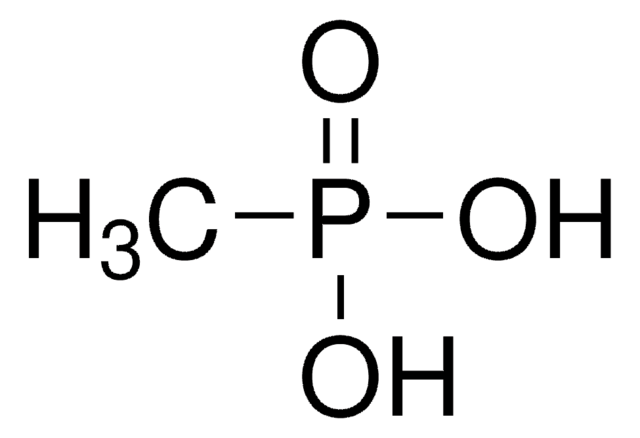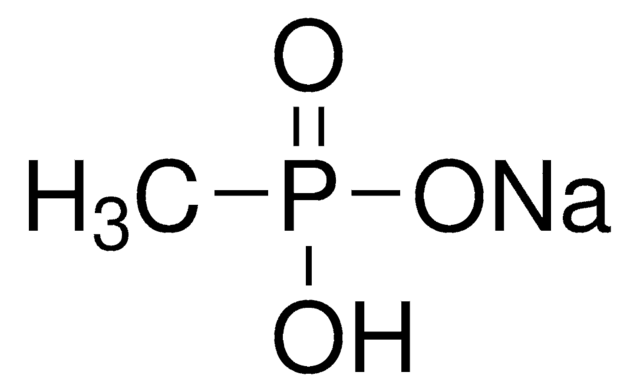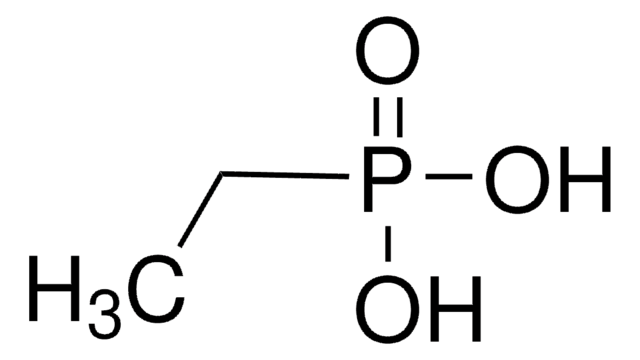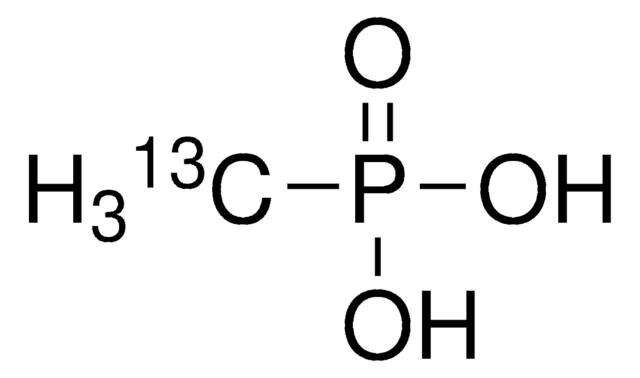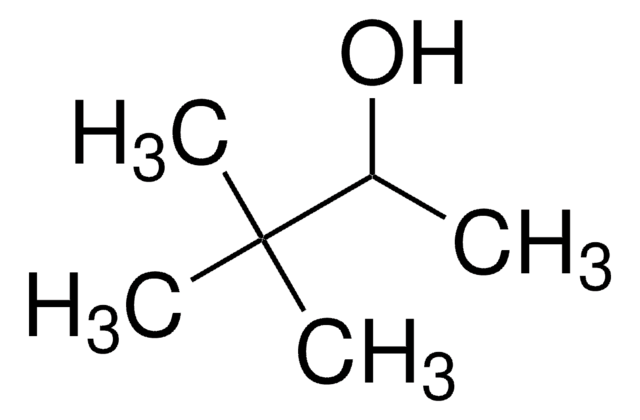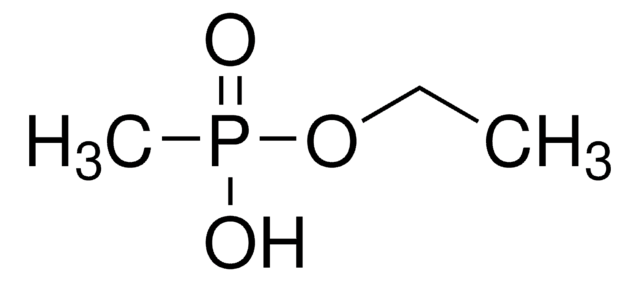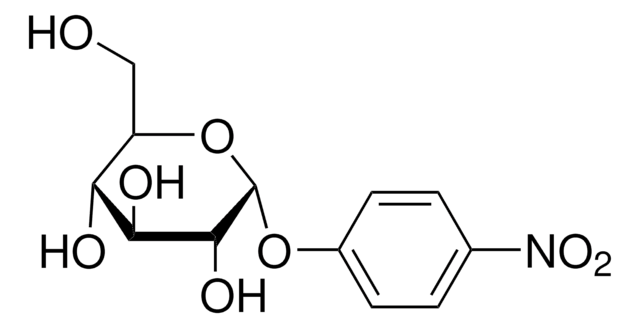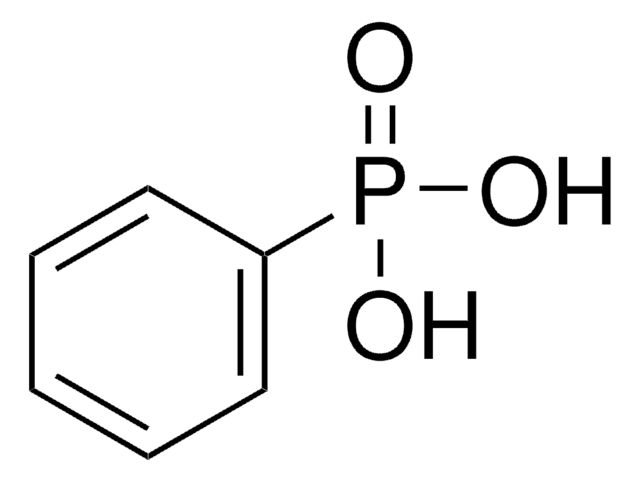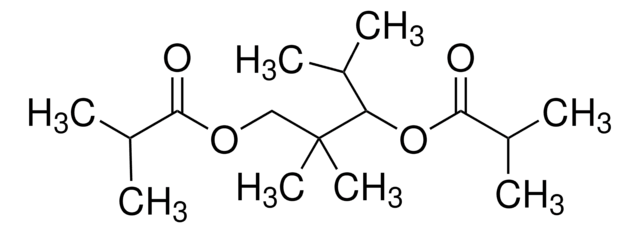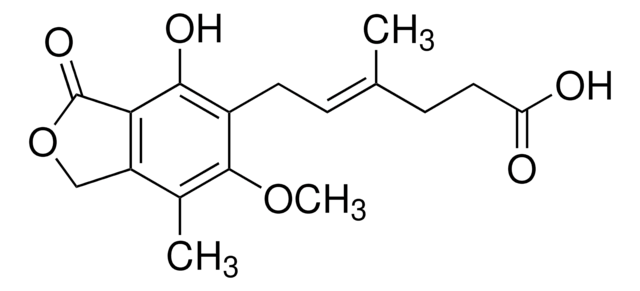40941
Methylphosphonic acid
99.0-101.0% (T)
Sinónimos:
MPA
About This Item
Productos recomendados
Quality Level
assay
99.0-101.0% (T)
loss
≤2.0% loss on drying
pH
0.9-1.4
mp
103-109 °C
105-107 °C (lit.)
solubility
H2O: 2.88 g in 30 mL, clear, colorless
cation traces
Al: ≤5 mg/kg
Ba: ≤5 mg/kg
Bi: ≤5 mg/kg
Ca: ≤10 mg/kg
Cd: ≤5 mg/kg
Co: ≤5 mg/kg
Cr: ≤5 mg/kg
Cu: ≤5 mg/kg
Fe: ≤5 mg/kg
K: ≤50 mg/kg
Li: ≤5 mg/kg
Mg: ≤5 mg/kg
Mn: ≤5 mg/kg
Mo: ≤5 mg/kg
Na: ≤50 mg/kg
Ni: ≤5 mg/kg
Pb: ≤5 mg/kg
Sr: ≤5 mg/kg
Zn: ≤5 mg/kg
UV absorption
λ: 260 nm Amax: ≤0.05
λ: 280 nm Amax: ≤0.04
SMILES string
CP(O)(O)=O
InChI
1S/CH5O3P/c1-5(2,3)4/h1H3,(H2,2,3,4)
InChI key
YACKEPLHDIMKIO-UHFFFAOYSA-N
¿Está buscando productos similares? Visita Guía de comparación de productos
Application
signalword
Danger
hcodes
Hazard Classifications
Acute Tox. 4 Oral - Eye Dam. 1 - Skin Corr. 1B
Storage Class
8A - Combustible corrosive hazardous materials
wgk_germany
WGK 2
flash_point_f
>392.0 °F - Pensky-Martens closed cup
flash_point_c
> 200 °C - Pensky-Martens closed cup
Certificados de análisis (COA)
Busque Certificados de análisis (COA) introduciendo el número de lote del producto. Los números de lote se encuentran en la etiqueta del producto después de las palabras «Lot» o «Batch»
¿Ya tiene este producto?
Encuentre la documentación para los productos que ha comprado recientemente en la Biblioteca de documentos.
Los clientes también vieron
Nuestro equipo de científicos tiene experiencia en todas las áreas de investigación: Ciencias de la vida, Ciencia de los materiales, Síntesis química, Cromatografía, Analítica y muchas otras.
Póngase en contacto con el Servicio técnico